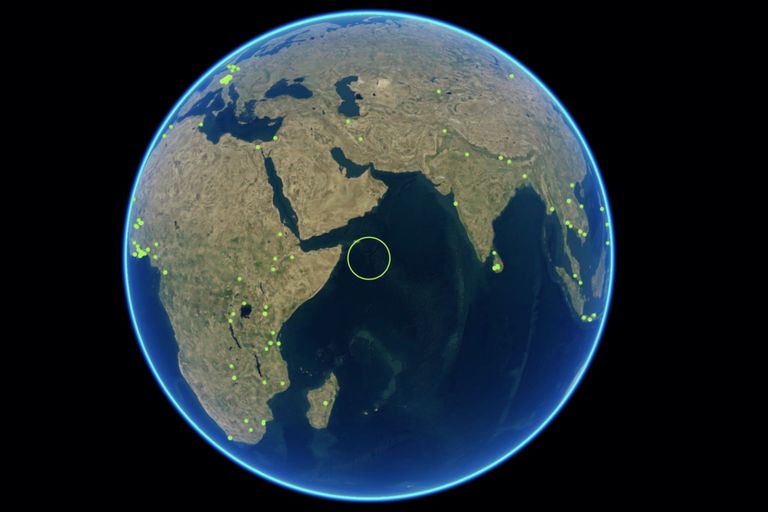Research Earth – Switzerland’s global research partnerships
For the first time, a new digital map comprehensively shows Switzerland's diverse research partnerships with institutions in developing and transition countries. With such research partnerships, Switzerland contributes to dealing with global challenges and their local impact. The map makes it easier to use synergies, better identify focal points of cooperation and enter into new partnerships. It is freely accessible to all.

Finding solutions to global problems and local impacts requires worldwide research partnerships with institutions in developing and transition countries. Such international research partnerships and intersectoral collaboration with politics, administration, business and civil society enable the consideration of global interrelations and different local needs for developing and implementing innovative solutions. Switzerland benefits from such research collaborations just as much as developing and transition countries.
Overview of Switzerland's global research partnerships
Swiss research institutions have long maintained numerous research partnerships with institutions in developing and transition countries. They are funded by various Swiss organisations, such as the Swiss National Science Foundation, the Swiss Agency for Development and Cooperation, the State Secretariat for Education, Research and Innovation, or private foundations. Although individual research organisations and funding agencies document the funded projects in various databases there has been no Switzerland-wide overview of global research partnerships until now. The novel Research Earth map comprehensively shows Switzerland's current research partnerships with institutions in developing and transition countries.
In this way, Research Earth provides an overview and enables researchers as well as those involved in politics, administration, business and civil society to find out who is conducting research where and on which topics. The aim is to simplify networking in order to exploit synergies and avoid duplication. For example, development organisations and foundations can use the map to obtain an overview of research activities in their topics or regions of focus. Research Earth offers researchers the opportunity to find additional research partners and to participate in international calls for proposals in new constellations.
Research funding organisations can use the information from Research Earth to better shape their funding instruments, for example, in order to strengthen regional or thematic research priorities or to close existing gaps in research. Thus, Research Earth contributes to strengthening Switzerland's research partnerships in a targeted manner and making them more visible.
Exploring Research Earth
On a digital globe, Research Earth shows all organisations and institutes involved in ongoing or recently completed collaborative research projects. Their networks and research disciplines are presented. Easy navigation on the globe allows searching for research institutes in different regions of the world. A search and browse feature using keywords is available. At present, Research Earth exclusively maps Swiss research partnership projects with developing and transition countries. The platform offers all the technical prerequisites to also map research partnerships with developing and transition countries of other European countries.
Research Earth was developed by the Commission for Research Partnerships with Developing Countries (KFPE) of the Swiss Academy of Sciences (SCNAT) and the Swiss Programme for Research on Global Issues for Development (r4d programme) of the Swiss Agency for Development and Cooperation (SDC) and the Swiss National Science Foundation (SNF), and technically implemented by OVA partners.
Contatto
Dr. Fabian Käser
SCNAT
Commissione per i partenariati di ricerca con paesi in via di sviluppo (KFPE)
Casa delle Accademie
Casella postale
3001 Berna


